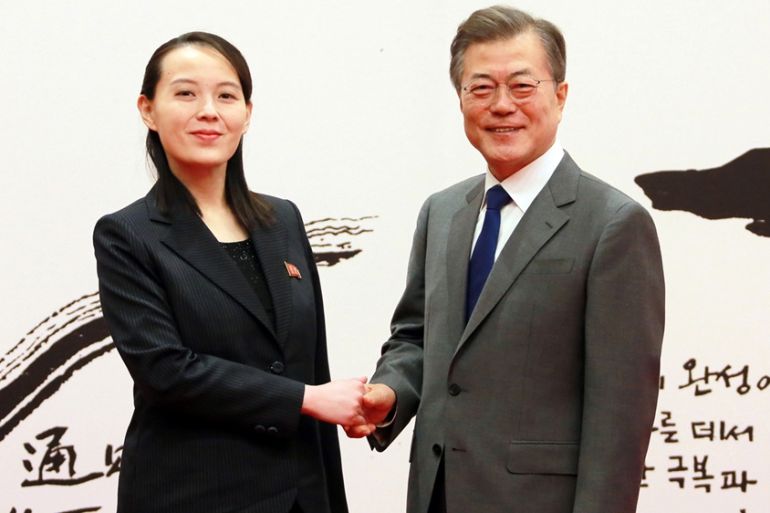North Korea’s human rights issues not on the summit agenda
Critics and analysts urge President Moon to bring up violations and abductions in the upcoming summit.

Seoul, South Korea – The agenda for the third inter-Korean summit scheduled for April 27 is unlikely to have North Korean human rights issues despite calls for the inclusion by more than 200 NGOs earlier this week.
The NGOs, including Human Rights Watch, sent a joint letter to South Korean President Moon Jae-in earlier this week to urge his North Korean counterpart to follow the UN’s human rights recommendations and facilitate human rights talks between the two Koreas.
Keep reading
list of 4 itemsGeorgia’s president vetoes controversial ‘foreign agents’ bill
‘Regime machinery operating efficiently’ as Tunisia cracks down on dissent
Why Egypt backed South Africa’s genocide case against Israel in the ICJ
The letter also pushed for regular reunions of separated families and increase inter-Korean people-to-people contact.
However, South Korea’s Ministry of Unification confirmed human rights in North Korea was not on the agenda.
“The main agenda will be denuclearisation, establishment of peace on the Korean Peninsula and improving North-South relations. Nothing more, nothing less,” Baik Tae-hyun, spokesperson for the ministry, told Al Jazeera.
This will be the first inter-Korean summit since 2007 and only the third since the 1950-1953 Korean War.
It is scheduled to be attended by North Korean leader Kim Jong-un and South Korean President Moon.
The human rights issues will not be given high priority because it is a sensitive issue and may cause “a psychological discomfort” at the summit, according to Hong Min, director of the North Korean studies division at the Korea Institute for National Unification.
“The meeting is a tight one-day event. There won’t be enough time to talk about everything. The focus will be on confirming each other’s stance on denuclearisation,” said Hong.
“North Korean human rights issues are likely to be discussed later at a wider international level with the participation of the international community.”
The joint letter sent to President Moon reflects the NGOs’ concerns that human rights issues have been sidelined due to other major political issues.
“The South Korean government has been reluctant to talk about North Korean human rights,” said Ahn Myeong-cheol, head of the Seoul-based NK Watch which consists of survivors of North Korea’s political prison camps and one of the 40 organisations that signed the letter.
“President Moon was a human rights lawyer who had been fighting for democracy and human rights in the country.
“North Korean human rights are as equally important as human rights in South Korea. It will be an irony if he doesn’t bring up North Korean human rights in the summit.”
The Korean War Abductees Family Union estimates that between 82,000 and 100,000 South Korean citizens were abducted across the border during the Korean War.
Family members of those individuals signed the letter sent to President Moon and urged North Korea to report the records of abductees and to return them.
“Time is ticking by to resolve the human rights-related issues,” said Hwang In-cheol, head of the 1969 KAL Abductees’ Families Association, whose father was kidnapped along with around 50 passengers on-board a Korean Air flight in 1969.
“The inter-Korean talks will only have sincerity when it touches on the issues that North Korea feels uncomfortable with.”